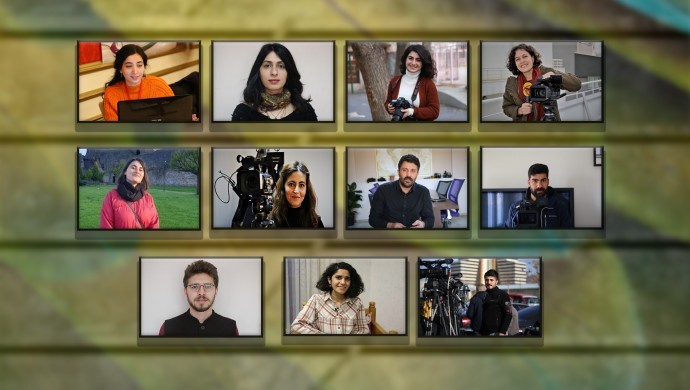Nine out of 11 journalists working for pro-Kurdish news outlets who were detained in police operations last week were arrested on Saturday, according to media reports.
Turkish police last Tuesday searched the premises of several pro-Kurdish media outlets and raided journalists’ houses in İstanbul and other cities including in the Kurdish-majority Southeast.
Police rounded up 11 journalists in İstanbul and Ankara as well as other cities including Diyarbakır. Seven of the detainees work for the pro-Kurdish Mezopotamya news agency, including its editor-in-chief Diren Yurtsever, and three for JINNEWS.
Zemo Ağgöz, one of the detained journalists from Mezopotamya, who has a one-and-half-month-old baby, was released from detention on Wednesday and was placed under house arrest.
The detained journalists were taken to Ankara for questioning on Friday where they were interrogated prosecutors.
One of the journalists, Mehmet Günhan, who once worked as an intern at Mezopotamya, was released on judicial probation, while nine were arrested on Saturday on the grounds that there was reason to suspect their membership in a terrorist organization.
Kurdish journalists in Turkey frequently face legal harassment, stand trial and are given jail sentences for covering issues related to Kurds and the outlawed Kurdistan Workers’ Party (PKK), considered a terrorist organization by Turkey and much of the international community.
Turkey, one of the top jailers of journalists in the world, was ranked 149th among 180 countries in the Reporters Without Borders (RSF) 2022 World Press Freedom Index.
Dozens of critical journalists were jailed in Turkey, while many media outlets were closed down in the aftermath of a coup attempt in 2016.
The arrest of the nine journalists comes at a time when the Turkish Parliament this month approved a tough pre-election law that could see reporters and social media users jailed for up to three years for spreading “fake news.”
The new measures for the media come before a general election that President Recep Tayyip Erdoğan enters trailing in the polls.
Opposition parties and journalists’ unions protested the new rules before and during the debates in the parliament.
Most Turkish newspapers and television channels fell under the control of government officials and their business allies during a sweeping crackdown that followed the failed coup in 2016.
But social networks and internet-based media remained largely free of oversight — much to the growing annoyance of Erdoğan.
